Official Gazette No.838, published on 10 Dec 2004 (1383/07/20 A.P.)
Basis
Article 1
This Law is enacted in light of the provisions of Article 50 and Article 75 (section 3) of the Constitution in order to regulate the affairs related to the campaign against bribery and corruption in all government offices, state owned enterprises, and the mixed, private or non-governmental organizations which are a party to contracts or transactions with government offices.
The responsible office:
Article 2
1. The principal source for investigating and regulating the affairs regarding the campaign against bribery and official corruption offenses shall be the Office for Campaign against Bribery and Official Corruption which acts independently under the supervision of the President.
2. Office for Campaign against Bribery and Official Corruption acts on the basis of the provisions of this Law and other legislative documents in force.
Definitions of Expressions
Article 3
The following expressions shall have the meanings set forth below:
1. Offices: Denotes all the government offices including the Judiciary, Public Prosecution, Armed Forces, Police and National Security, Enterprises, mixed, private or non-governmental organizations which in some way or another are transacting with the State.
2. Bribery: Denotes the meanings provided in Articles 254 to 267 of the Penal Code.
3. Official Corruption: It is an illegal act committed by state employees and other public servants to attain to personal or group aims in the following manners:
– Embezzlement and deception,
– Stealing documents,
– Wastage of official records and papers,
– Transgressing the legal scope of authorities,
– Using government facilities and official times for personal affairs,
– Refusing to perform duties without a legal justification,
– Concealing the truth,
– Forging documents,
– Pretending to have the power to do or refuse to do an act, which is outside the scope of the public servant’s official power,
– Transgressing the legal scope of authorities
– Receiving any gift to perform a job in the related affairs,
– Unjustified delay in performing the delegated duties,
– Misbehavior of public servants towards individuals
– Bribing, illegally recommending requesting and lobbying
– Involving ethnic, regional, religious, linguistic, partisan, gender and personal considerations into selection and employment
4. Public Servants: Denotes the meaning provided in Article 12 of Penal Code.
5. Inspection: Denotes an investigation carried out about the performance of the ministries and offices provided in section 1 of this Article by the authorities of the Office for Campaign against Bribery and Official Corruption on the basis of received information and signs and traces of offenses provided in this law.
Objectives
Article 4
The objectives of this law are:
1. Identifying the causes and motivations of corruption in the offices and taking necessary and effective measures to eradicate it.
2. Promoting transparency in the performance of offices and institutions party to transactions and contracts with the government.
3. Inspection of suspicious financial and economical activities of offices in a way to cause the strengthening and development of national economy and social growth, and to make sure of the accuracy of precise accountability of public properties.
4. Analyzing and evaluating the financial and economical activities and the professional effectiveness of central and provincial offices in which there is suspicion of bribery and official corruption.
5. Sustainable campaign against the crime of bribery and different types of official corruption in the offices provided in Article 3 (1) of this Law.
6. Continual effort to create a healthy, efficient, and responsible administration for the people within the scope of authority.
7. Investigating into how public goods and properties are kept and maintained in accordance with the provisions of the law.
8. Attracting the cooperation and assistance of other government offices to eradicate official corruption.
9. Identifying the individuals and offices violating law and introducing them to the proper authorities for judicial prosecution.
Chapter 2
Duties and powers
Duties:
Article 5
The Office for Campaign against Bribery and Official Corruption has the following duties:
1. Proposing government policy in regard to the campaign against bribery and different types of official corruption and implementing it upon approval by the President.
2. Creating an active and effective mechanism for the enforcement of the provisions of this Law and supervising its implementation.
3. Conducting requisite studies to obtain efficient and proper methods of creating a healthy administration.
4. Identifying the causes and reasons which create corruption in the public administration system.
5. Advising on different methods of the logical usage of material and technical facilities in regard to the prevention of official corruption.
6. Investigating the affairs related to bribery and corruption in offices.
7. Providing regular reports concerning the performance and achievements of the Office to the President.
8. Publishing detailed reports of the annual activities of the Office to inform the public.
9. Creating an information center database to register the properties of public servants.
10. Staging training courses, seminars, workshops, and conferences to promote the efficiency and professional capacity of the Office in the capital and provinces.
11. Establishing and expanding relations and affiliation with similar offices of the friendly states and international organizations.
12. Proposing the required measures to promote the professional efficiency and transparency of financial and economic activities of central and provincial offices.
13. Other duties delegated to it by the President.
Powers:
Article 6
The Office for Campaign against Bribery and Official Corruption shall have the following powers:
1. To take urgent decisions to introduce suspects of bribery and official corruption crimes provided in this law to face judicial prosecution.
2. To follow and ensure about the enforcement of the decisions provided in subsection 1 of this Article.
3. To ensure about the enforcement and observance of laws, decrees, and other legislative documents governing the campaign against bribery and official corruption.
4. Issuing directions to stop the activities of such offices whose lack of transparency and efficiency is proved upon inspection.
5. In case of necessity, the re-evaluation of investigated documents.
6. Requiring the needed documents from the offices.
7. Inviting the heads of internal offices and specialists to explain and advise in the issues under inspection.
8. Attracting the cooperation of the heads of offices to deal with the complaints arising from official corruption.
9. Ensuring about the accuracy of accountability and protection of public properties in the offices under inspection.
10. Practical inspection of the process of financial and economic activities of the offices and the achievement of the provisions of contracts of the offices with organizations, companies and individual persons providing services in cases where their officials are suspected of committing crimes defined in this Law.
Chapter 3
Miscellaneous provisions
Organization:
Article 7
The Office for Campaign against Bribery and Corruption shall have central and local structures proposed by its chairman and approved in accordance with the provisions of law.
Dealing with the cases of local offices:
Article 8
The cases of bribery and official corruption in the provinces and their related districts shall be inspected by the regional center of the Office for Campaign against Bribery and Official Corruption in the jurisdiction of which they are located.
Cooperation among offices:
Article 9
The offices are obliged to cooperate in the achievement of the objectives provided in this Law with the Office for Campaign against Bribery and Official Corruption in the following cases:
1. Providing the required facilities for the officials of the Office for Campaign against Bribery and Official Corruption during the inspection of concerned matters.
2. Presenting the necessary information and explanations to the officials of the Office for Campaign against Bribery and Official Corruption, when requested.
3. Assigning professional specialist employees to cooperate with the officials of the Office for Campaign against Bribery and Official Corruption during inspections.
4. Presenting reports concerning the achievement of the results of previous inspections and the enforcement of the instructions and orders of the competent authorities within the time limit fixed by the Office for Campaign against Bribery and Official Corruption.
Approving Procedures:
Article 10
In order to better enforce the provisions of this Law and regulate the duties of the related branches the leadership of the Office for Campaign against Bribery and Official Corruption shall prepare and approve Procedures.
Confidentiality of executions:
Article 11
The officials of the Office for Campaign against Bribery and Official Corruption shall be obliged to refrain from disclosing documents and secrets of the office; otherwise those who commit such actions shall be prosecuted.
The applicable penal provisions:
Article 12
1. The perpetrators of the crimes defined in this law, including the employees of the Office for Campaign against Bribery and Official Corruption shall be punished in accordance with this law and other laws in effect.
2. In case there is not a punishment foreseen for any of the violations defined in this law, in the Penal Code or other laws, the court has the authority to punish the perpetrators according to circumstances of the offense.
The duties of the judicial authorities
Article 13
The judicial prosecution authorities and other related offices shall inform the Office for Campaign against Bribery and Official Corruption of the actions taken concerning the crimes stated in this Law within the time appointed.
Absence of overlapping in duties:
Article 14
The provisions of his Law does not intervene with the duties and authorities provided in the legislative documents of other offices.
Enforcement:
Article 15
This Law shall be in effect from the date of signature by the president and shall be published in the Official Gazette.



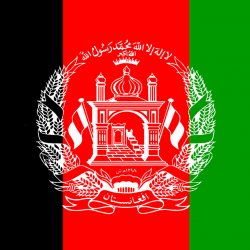
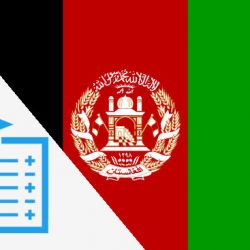
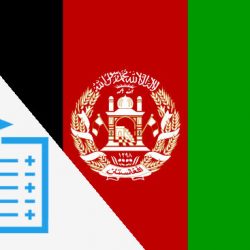
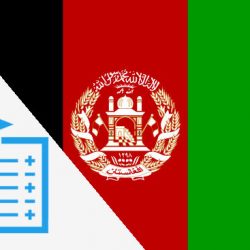
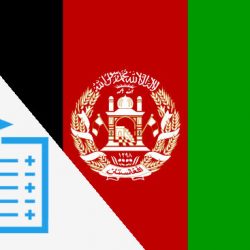
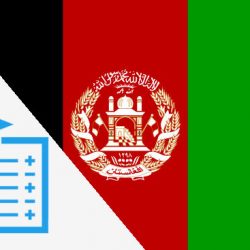
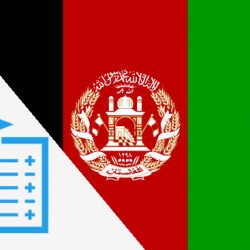
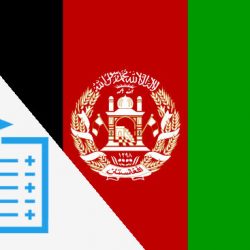
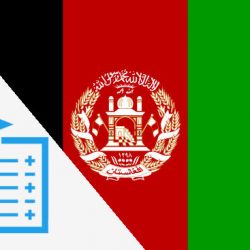
 We will not leak your personal information
We will not leak your personal information